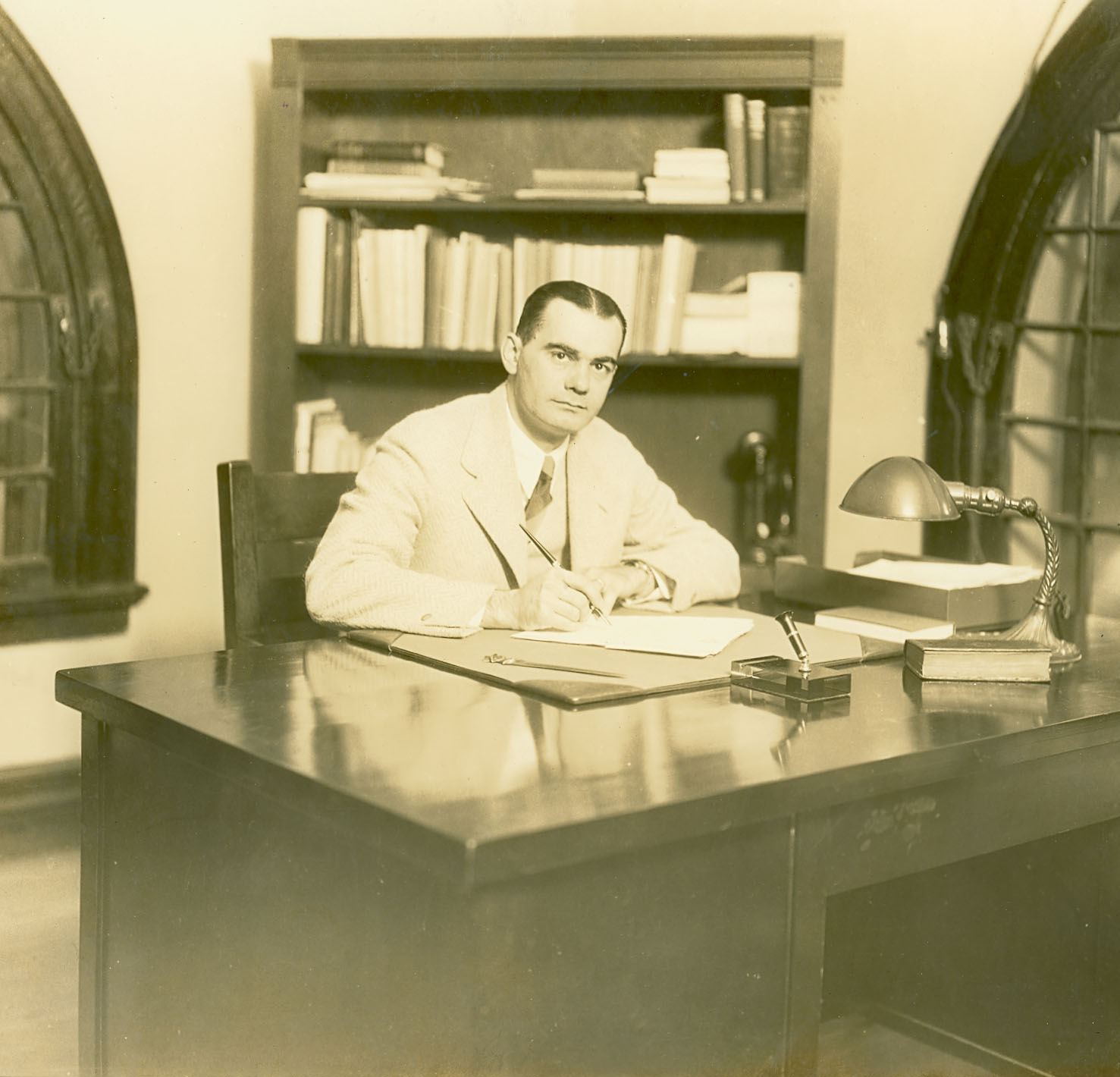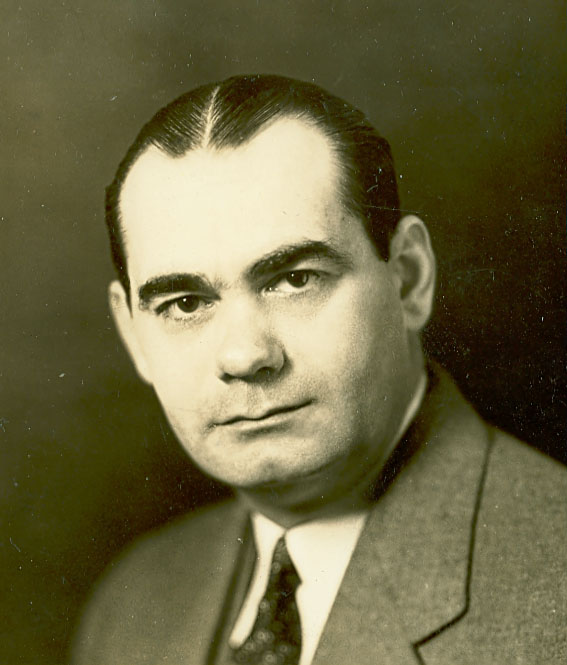Winslow S. Anderson (1898-1948):
Dean of the College
 Born to Robert
and Annie Lewton Anderson in Portland, Maine on July 28, 1898, Winslow
Samuel Anderson received his formal education in New England.
There, he
graduated from Portland High School and enlisted as a chemical warfare
officer in World War I. Following his services to the army, Anderson
attended Bates College, where he worked as assistant to the head of the
chemistry department. After graduating with his Bachelors of Science degree
in 1921 from Bates, Anderson decided to use his chemistry background to
instruct students at Rollins College. Feeling a need to advance his studies
in Chemistry, Anderson left Rollins in 1922 to attend the University of
Minnesota for his Masters of Science degree. After two years of teaching at
the State College of North Carolina, Anderson spent the next three years as
executive secretary of the Theta Kappa Nu Fraternity.
Born to Robert
and Annie Lewton Anderson in Portland, Maine on July 28, 1898, Winslow
Samuel Anderson received his formal education in New England.
There, he
graduated from Portland High School and enlisted as a chemical warfare
officer in World War I. Following his services to the army, Anderson
attended Bates College, where he worked as assistant to the head of the
chemistry department. After graduating with his Bachelors of Science degree
in 1921 from Bates, Anderson decided to use his chemistry background to
instruct students at Rollins College. Feeling a need to advance his studies
in Chemistry, Anderson left Rollins in 1922 to attend the University of
Minnesota for his Masters of Science degree. After two years of teaching at
the State College of North Carolina, Anderson spent the next three years as
executive secretary of the Theta Kappa Nu Fraternity.
In 1928, Anderson returned to Rollins as a professor of chemistry and dean of men. One year later, Rollins College named Anderson the dean of the College, a position in which won him “admiration and affection of the faculty and student body.”[1] Over his tenure of thirteen years, Anderson became closely associated with the president of Rollins, Hamilton Holt, in the development of the conference plan, helping to bring the first adult education program to Rollins, as well as Omicron Delta Kappa, Libra, and other prestigious organizations. For the keenness of vision that Anderson exhibited with his involvement, Whitman College requested his leadership. In 1944, Anderson accepted the offer as sixth president of Whitman College. Before departing from Rollins, however, President Holt awarded Anderson with an honorary degree, stating, “We have complete confidence you will rise to higher and even higher achievements, both professionally and personally throughout the unfolding years…”[2]
President Anderson did just that, helping in the development in a counseling center, a student center, and a curricular program that strengthened the educational values Whitman was built upon.[3] Over the six-year period he served the College, Anderson also corrected inequalities among the faculty in such matters as teaching loads, ranks, and salaries, and ultimately steered the College through the difficulties of World War II.
On November 13, 1948, Anderson’s reign of presidency ended suddenly with his death. Praise for the work and guidance that Anderson provided over his fifty year lifespan was sounded one week later after his death at the First Congregational Church in Walla Walla, Washington. “We shall not forget Winslow Anderson,” remarked Chester Maxey, dean of the social sciences division at Whitman College, “And this is not the final expression of our high regard for him…a man of his quality does not live in calendared time alone, but in an endless sequence of fruitions insured by the intensity of his devotion.”[4]
-Alia Alli
[1] Arthur D. Enyart, “Citation for Honorary Degree of Doctor of Sciences for Winston S. Anderson,” Box 45E, Olin Library, Rollins College, Winter Park, Florida.
[2] Hamilton Holt, Ibid.
[3] Melvin C. Jacobs, Paul C. Jackson, and William H. Huchings, “College Joins in Paying Tribune to Late President,” The Whitman College Pioneer, November 19, 1948.
[4] “Dr. Anderson Memorial Is Held Monday,” November 22, 1948, Box 45E, Olin Library, Rollins College, Winter Park, Florida.
